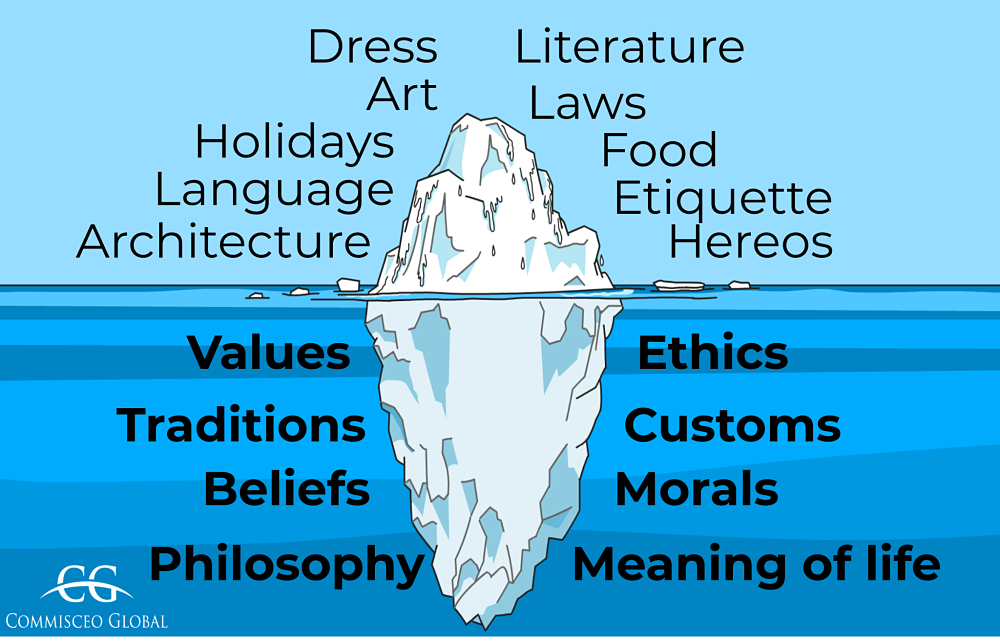Why do we focus on culture in corporate training? Is it really all that important?
Understanding the role culture plays in our lives is very important.
Especially when working across cultures or in different parts of the world, if you don't understand how culture works, you can make mistakes.
These mistakes can be harmless, or, they can also be very serious.
This is applicable not only to when you might be travelling abroad for a holiday but also throughout your professional life.
Working with people from different cultures has become more and more frequent for many of us and, as a result, more important.
DON'T MISS THE SAMPLE OF OUR CULTURAL COMPETENCE COURSE AT THE END!
The Impact of Cultural Differences
The reason we focus on culture is because of the very fact that many people within professional and personal life underestimate the impact cultural differences can have.
Although it may be easy to learn facts and do’s and don’ts about different cultures, this is not necessarily being culturally competent.

If you think of culture as an iceberg, what we see of culture is tiny in comparison to what we cannot see.
It is the unseen elements of culture such as values and beliefs, that are usually hardest for people to understand and deal with.
When we interact in cross-cultural situations, a lack of awareness can lead to bad or poor decisions.
Cultural competence helps us reduce the chances of making bad decisions and increases the chance of us making more insightful, considered decisions.
When a Lack of Cultural Competence Impacts Decision-Making
How about we look at this example to explain this further?

Mrs Carter is from the UK and is recruiting new staff at her company. She is interviewing a young man, Ali, who is originally from Afghanistan.
Throughout the whole interview, he barely looks her in the eyes. Mrs Carter, although impressed with his knowledge and level of English, is astounded by his lack of respect for her and can’t believe he wouldn’t look at her.
She finds his behaviour unpleasant and as a result, he is not given the job.
What happened?
Let’s look at what happened here with some cultural insights, shall we?
In this case, Mrs Carter jumped to conclusions about the interviewee’s behaviour. Had she been a little more aware of the interviewee’s cultural background, she would have known that in Afghanistan, looking in a woman’s eyes is considered extremely rude, if not insulting.
As a result, he thought he was being polite by avoiding eye contact. Mrs Carter interpreted his behaviour according to her values. She therefore based her decision on an incorrect reading of the situation.
It is also equally valid, to say that Ali should have been more aware of the fact that in Mrs Carter’s culture (the UK), looking at people in the eyes is a sign of confidence and trust.
So, Mrs Carter has potentially lost out on a fantastic recruit and Ali has potentially lost out on a fantastic job.
Although no party is to blame, the outcome has not been positive for either, has it? How different could the result have been?
Cultural Competence is About Smart Decisions
These sorts of misunderstandings do not only come at an individual level; they happen at all levels.
The business world is full of examples of where companies have ventured into foreign countries and completely failed to understand the local culture.
This all clearly shows us how culture can and does get in the way when it comes to how we see others and the decisions we make. Cultural competence helps us to move beyond this.
An important learning point that we must stress, is that being culturally competent is not about compromising your own culture or sacrificing your values or identity for ‘another’s’.
It is simply about helping us understand how we can best adapt our approaches, thoughts and decisions to ensure we create positive outcomes in cross-cultural interactions. It is about respecting others’ cultures as well as our own.
Take a Professional Training Course on Cultural Competence

Want to learn more? Then you might be interested in our online cultural competency course.
It's ideal for professionals who want a simple yet practical guide to working with people from different cultures.
Photo by Anthony Shkraba from Pexels
